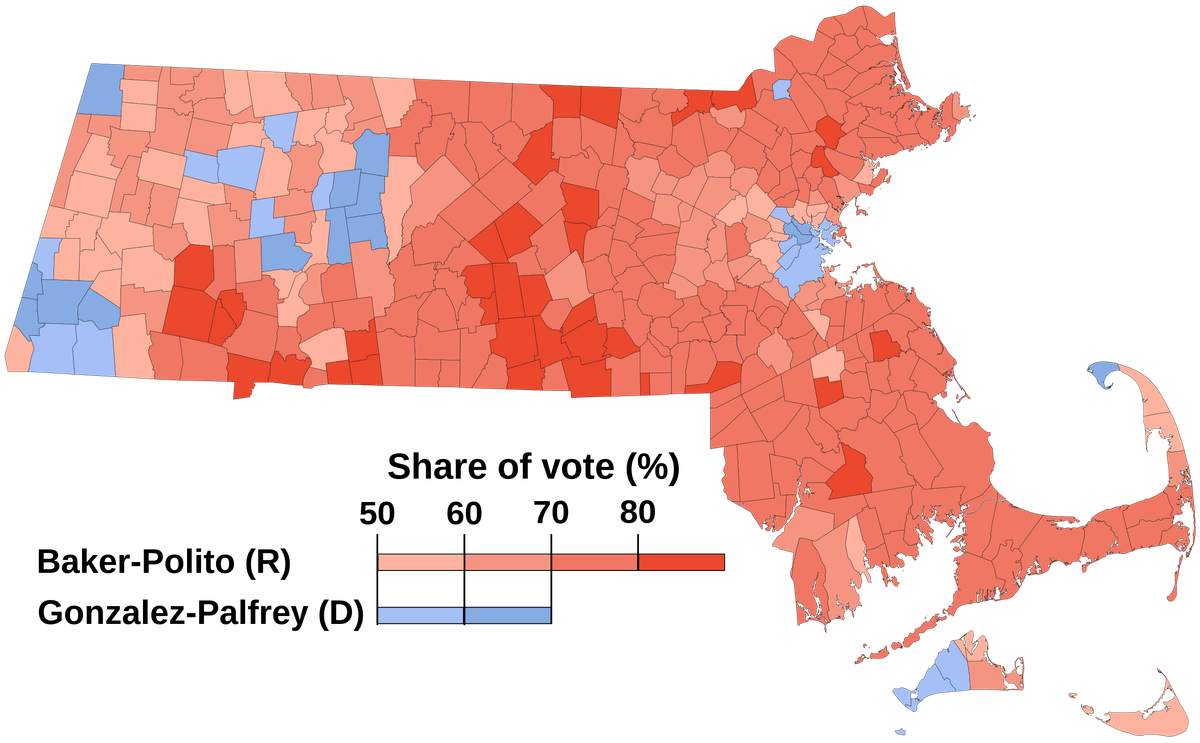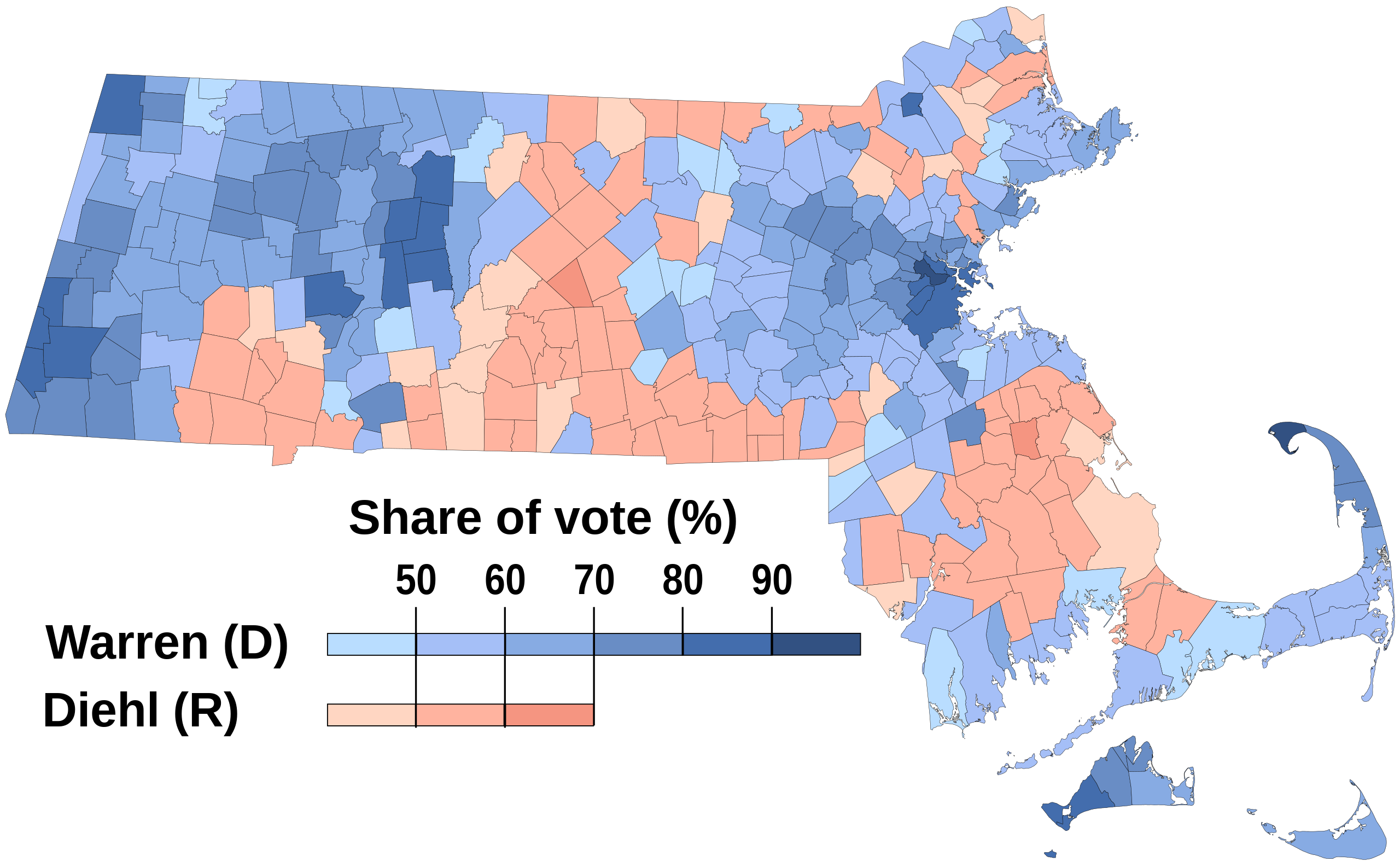Mass. Insider: Our Politics Are Weird, But Changing
Mass. Insider Columnist Shane Dillon ’26 attempts to make sense of a central paradox of Massachusetts politics.


Why does the Commonwealth of Massachusetts elect Republican governors despite voting consistently Democratic on the federal level? It is a phenomenon that occurs in other states, but why specifically in one of the bluest in the country?
Massachusetts voters are known for electing progressive federal representatives. Sen. Elizabeth Warren champions bold economic reform to rebuild the middle class. Sen. Ed Markey advocates for the Green New Deal. Rep. Richard Neal wrote most of the federal child tax credit. Rep. Jim McGovern champions ending child hunger, Rep. Ayanna Pressley fights for police reform, Assistant Speaker of the House Rep. Katherine Clark supports universal pre-K, and so on. We have a completely Democratic federal delegation, and all of our other statewide offices are held by Democrats as well. The national Republican party collectively opposes anything progressive-seeming — so why is it that Republicans fare so well in the Massachusetts Governorship?
Voters in Massachusetts tend to base their vote on who they like, rather than on a specific policy platform. Policy is of course a factor, but in a state that is generally more liberal, electoral results frequently fall down to the character of the people running. Gov. Charlie Baker may be a Republican, but his personal appeal to even the most liberal of Democrats is what has allowed him to triumph.
Baker has been labeled as a liberal Republican, and many in his own party have called him a RINO (Republican-in-name-only) for straying away from the Republican party’s national agenda. He is personable, humble, and oftentimes sides with Democratic talking points. Along with claiming that abortion is a human right that must be upheld, he has also signed a major climate bill negotiated by the Democratic supermajority in the state legislature. This allows him to be seen as an unconventional Republican even in the bluest parts of the state. In 2018, Baker won almost every major liberal city and their suburbs (Springfield, Worcester, Easthampton, etc.). He even narrowed the election in Boston down to less than one point — the closest any Republican gubernatorial candidate has come to winning the very blue city since Bill Weld won it in 1994.
But the success of Republican candidates in gubernatorial races has not helped their chances on the Congressional stage. In 2018, progressive Sen. Elizabeth Warren’s re-election ran alongside the governor’s election. She beat her opponent by 24 pts even as the Republican Baker retained the governorship by over 30 pts. While the Republican party in Massachusetts has been shifting to the right in recent years, a majority of our Republican governors have run on a fiscally conservative but socially liberal platform. (This is the case in other states such as New Hampshire and Vermont as well, but it is unique in Massachusetts because of our heavily Democratic population). Baker has signed climate bills and abortion rights into law but hesitated on funding a West-East rail line because of its cost.
Republican governors have fared so well here because they connect with voters personally, but they also don’t play to the tune of their party’s national agenda. Baker opposed Amy Coney Barrett’s nomination to the Supreme Court, a social stance that probably made him more popular in the state precisely because it ran against party rhetoric. However, the ability for politically successful Republican governors to exist outside of their party’s mainstream may soon disappear.
Electing the Trump-endorsed Geoff Diehl as the Republican nominee for governor was the worst decision Republican voters here could have made. As the MAGA movement continues to infiltrate historically moderate Republicans such as the ones in Massachusetts, their ability to win in blue states may be coming to an end. Charlie Baker’s personal likability and moderate-policies allowed him to appeal to independents and Democrats and become one of the most popular governors in the country — but Geoff Diehl can’t have that appeal. As I mentioned in my first article, Democratic nominee Maura Healey can argue that he will alienate residents that disagree with him because of his far-right ideology. Healey, on the other hand, seems to be continuing the tradition of appealing to all voters personally while not forgetting to promote what is popular in the state.
Healey’s campaign took a while to release specific policy items even after it started. She instead appealed to voters by first sympathizing with them — relating to them. Her pitch is that she is the product of a single, working mother, who worked her way to the top on her own and understands teamwork and struggle based on her upbringing. That pitch alone is enough to attract almost all single, working mothers in the Commonwealth to Healey’s side without her necessarily having to release specifics on how she plans to support single mothers. (Those specifics, however, did come later and are now all over her website.) Healey is a Democrat, but her lack of policy promotion and emphasis on relating to residents’ struggles echoes the argument that on the state level, gubernatorial candidates don’t have to play to the tune of their party’s agenda to win.
I believe that there can be a balance. I also believe that achieving policy goals is more important than blindly promising them. Healey has worked with the legislature for almost a decade and has built the relationships necessary to be a transformative governor. If Maura Healey were not the Democratic nominee, I would probably have voted for Baker if he ran for a third term. But I would not vote for Baker if he were ever a Senate candidate. That would give the national Republican party more power federally. Republicans here and in other states can be checked and balanced by the state legislature on policy, but federally they are pressured to appeal to a party agenda more than to the people’s individual needs.
Regardless of political affiliation, research all of the candidates running where you are voting. Vote for whom you believe will deliver the bold and reformative social and fiscal results that you want to see.
If you have thoughts on this or any of our articles, comment below or send us a letter by using this form or emailing [email protected].




Comments ()